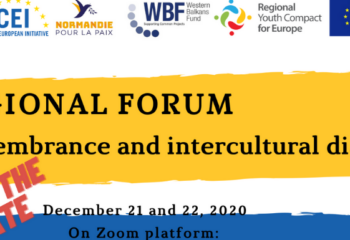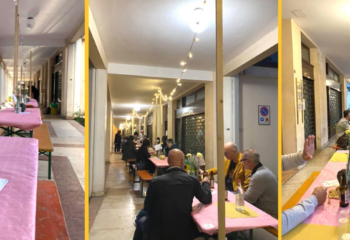
The Place to Be is in Vicenza!
October 27, 2020Among the several participatory processes ALDA is implementing throughout Europe, a special place is taken by the project carrying on within our very neighborhood in Vicenza (Italy): the “Spark” (Scintilla) project.
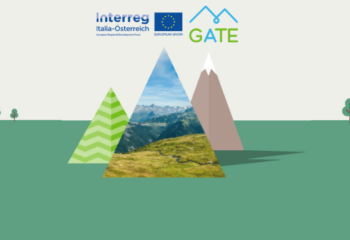
Go to GATE: practices of inclusive tourism
October 27, 2020Interested in inclusive tourism? A series of five workshops will take place within the context of the GATE project – Granting Accessible Tourism for Everyone.
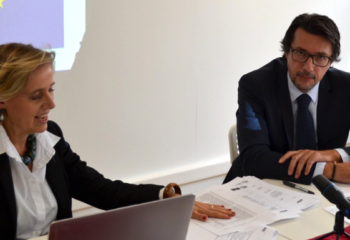
ALDA’s 20-year celebrations at their finest during the General Assembly
October 26, 2020On Friday 9th October 2020 took finally place in Brussels the ALDA General Assembly, broadcasted online, so that each member of ALDA as well as the whole staff could participate.
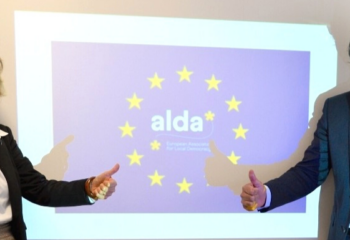
Welcome to the new Governing Board of ALDA
October 26, 2020On Friday October 9th, just after the Extraordinary General Assembly, the 12 candidates to the Governing Board were unanimously elected: an unprecedent situation justified by the number of candidates, being 12 as the positions available, and the excellence of each of them.
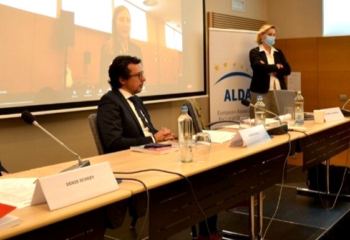
Fostering participatory democracy in Eastern Europe: to be continued!
October 26, 2020On Wednesday 7th October 2020, took place the final conference of the project “Empowering Local Authorities & Civil Society to Deliver Solutions with Participatory Democracy”, organised in Brussels and streamed online for all participants.
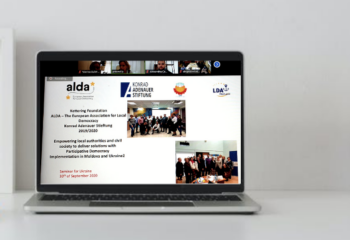
On participatory democracy in Eastern Europe
October 19, 2020On September 29th and 30th, 2020, a conference was held respectively in Moldova and in Ukraine under the joint partnership of ALDA, the Kettering Foundation and KAS – Konrad Adenauer Stiftung on the topic of “Empowering local authorities and civil society to deliver solutions with participative democracy: implementation in Moldova and Ukraine”.
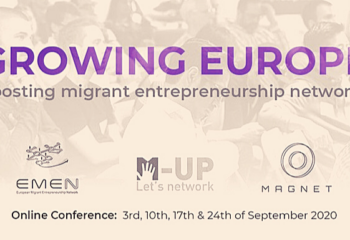
The future and potential of migrant entrepreneurship at EMEN’s final events
October 8, 2020The EMEN – European Migrants Entrepreneurship Network project is coming to its conclusion, and we are happy to share with you an invitation to their last online event taking place on September 24th as part of the web-conference titled “Growing Europe.
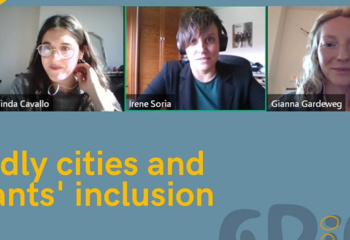
Circus-adapted psychomotor activities for people with disabilities! LDA Tunisia’s experience
October 8, 2020At the beginning of September 2020, Local Democracy Agency Tunisia coordinated a two-week training on psychomotor activities as part of the project Ricomincio Da Te, i.e. “I Start With You” in Italian.
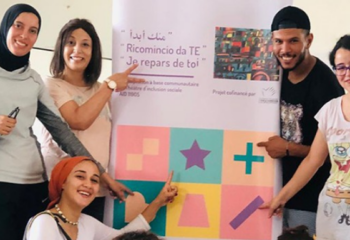
Circus-adapted psychomotor activities for people with disabilities! LDA Tunisia’s experience
October 8, 2020Local Democracy Agency Tunisia coordinated a two-week training on psychomotor activities as part of the project Ricomincio Da Te, i.e. “I Start With You” in Italian.
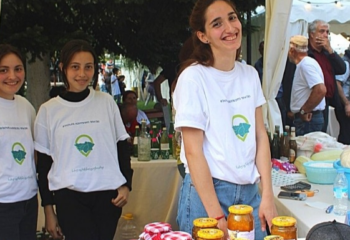
A Forum to promote regional tourism in Georgia
October 8, 2020On August 21st, 2020, the Local Democracy Agency Georgia held the Forum of Regional Tourism of Racha-Lechkhumi Lower Svaneti in Ambrolauri, with the aim of promoting the tourism and the agro-touristic opportunities of the region.
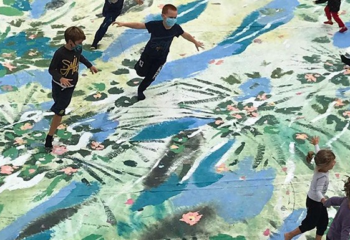
“I fiori d’Europa”: la street art per l’inclusione sociale
October 8, 2020Nell’ottica di promuovere l’inclusione sociale tra i più giovani, la creatività, la coesione e la contaminazione tra culture diverse e forme artistiche atipiche, giovedì 1° ottobre 2020 si è tenuto ad Arcugnano in Piazza Rumor il laboratorio artistico di pittura “I fiori di Europa” come attività del progetto STAR.
